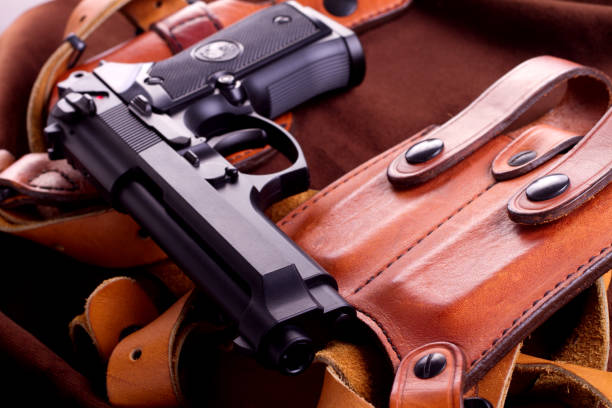
Is A Shoulder Holster A Good Way To Carry? Exploring the Pros and Cons
When it comes to concealed carry, individuals often find themselves grappling with the choice of holsters. The market offers a variety of options, from inside-the-waistband (IWB) holsters to ankle holsters, each catering to different preferences and situations. The shoulder holster is one option that has a distinct appeal yet sparks much debate. In this article, we’ll delve into the pros and cons of using a shoulder holster to help you decide whether it’s the right choice for you.
The Pros of Using a Shoulder Holster:
- Concealment and Comfort: A shoulder holster offers excellent concealment, especially under a jacket or loose-fitting clothing. This can be advantageous for those who need to keep their firearm hidden without worrying about printing or revealing it unintentionally. Additionally, many users find shoulder holsters comfortable for extended periods, as the weight is distributed across the shoulders and back.
- Accessibility: Shoulder holsters provide quick and easy access to your firearm. The natural movement of reaching across your body can be more intuitive for some individuals than drawing from a hip holster. This accessibility can be crucial in situations where seconds count.
- Fashion Flexibility: Shoulder holsters provide a stylish and functional alternative for those who prefer to dress in a manner that makes traditional holster options less viable. They work well with various outfits, allowing individuals to maintain their style while carrying concealed.
The Cons of Using a Shoulder Holster:
- Printing Issues: While shoulder holsters are excellent for concealment, they can be prone to printing, especially with smaller firearms. The outline of the gun may be visible through clothing, potentially compromising the element of surprise.
- Draw Limitations: Some users argue that shoulder holsters can be slower to draw from than those positioned on the waist. Reaching across the body and navigating clothing layers can add valuable seconds to the draw time.
- Comfort Depends on Body Type: The comfort of a shoulder holster is subjective and heavily depends on individual body types. Some users find the straps digging into their shoulders or back uncomfortable, especially if worn for extended periods.
- Limited Firearm Size: Larger or heavier firearms may not be as well-suited for shoulder holsters. The weight distribution may become uneven, leading to discomfort or even potential safety issues.
Conclusion:
Choosing a holster is a highly personal decision in the concealed carry world. A shoulder holster can offer a unique blend of concealment, accessibility, and style, but weighing these benefits against potential drawbacks is crucial. Consider your body type, preferred firearm, and everyday clothing choices when deciding if a shoulder holster fits you. It may not be a one-size-fits-all solution, but it can be an excellent way to carry concealed for the right individual and circumstances.
In the end, the effectiveness of a shoulder holster hinges on personal preference, lifestyle, and the specific demands of your daily activities. Before making a decision, it’s advisable to try out different holsters and carry methods to find what suits you best. Whether you opt for a shoulder holster or another way entirely, the key is to be comfortable, confident, and responsible in your concealed carry choice.
As you navigate the diverse landscape of concealed carry options, remember that what works for one person may not work for another. The goal is to find a method that fits seamlessly into your lifestyle, allowing you to protect yourself and your loved ones effectively.


